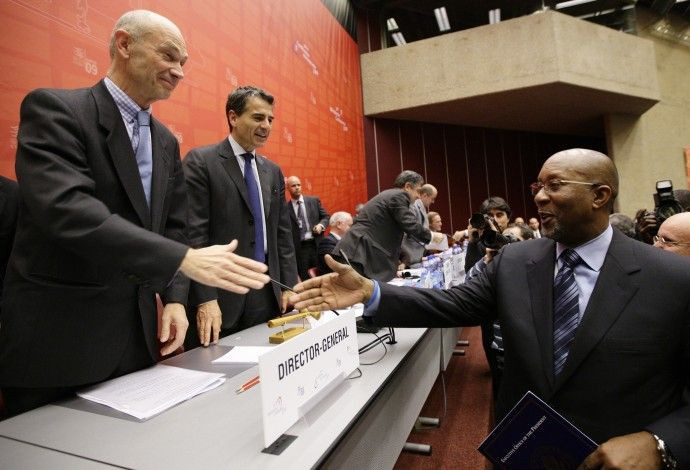Countries making own trade rules as WTO Doha negotiations stall

The last comprehensive international trade agreement was the Uruguay Round, which concluded in 1994.
The world, since then, has changed in profound ways.
However, the Doha Development Round -- the next comprehensive global trade agreement that is supposed to address these changes -- has languished under the World Trade Organization's (WTO) watch for nine years and threatens to be the first failed multilateral trade negotiations since the establishment of the General Agreement on Tariffs and Trade (GATT)/WTO in 1947.
Meanwhile, many countries have taken it upon themselves to negotiate regional or bilateral trade agreements to match evolving economic realities. As such agreements proliferate, there is a serious risk that the [WTO] multilateral trading system will gradually lose its relevance in international trade, stated a joint report by the United Nations and the Japan External Trade Organization.
There are 171 FTAs in effect as of August 2009. In 1999, there were only 66 and before 1989, there were only 16.
Increasingly, FTAs have addressed intellectual property rights (IPRs), investment protection and liberalization, and the access of foreign companies to government spending/purchases, issues that are inadequately covered by the outdated Uruguay Round.
Developed countries like the U.S., the EU collectively, and Japan have pushed hard for IPRs in FTAs to combat patent infringement and product piracy, especially in developing countries. In fact, almost all FTAs concluded by developed countries, such as the EU, Japan and the United States, include clauses related to the protection of IPRs, stated the UN report.
Another trend is the proliferation of FTAs in Asia, for example those between the Association of Southeast Asian Nations (ASEAN) and China, South Korea, Japan, Australia, and India.
Generally speaking, FTAs do have a valid place in global trade beside a mutilateral global trade agreement, stated the report. For one thing, they allow the customization of trade liberalization, which is sometimes needed for countries just opening up. However, there are drawbacks as these agreements increasingly marginalize the WTO's multilateral system.
First, the EU and United States use their hegemonic economic power[s] to divide and conquer smaller countries.
If these countries bargained collectively under a multilateral system, they will have more power. However, in individual trade negotiations with the U.S. or EU, they are sometimes forced to concede to unfavorable terms. It is also not difficult to imagine emerging heavyweights like China or India employing their own hegemonic economic powers in FTAs with smaller countries.
Second, these agreements inevitablely exclude certain countries or regions -- usually the poorest ones -- from global trade.
Sub-Saharan Africa comes to mind; this region has been historically marginalized from global trade and currently has only four bilateral FTAs. Furthermore, it is difficult and costly in general for smaller countries to negotiate FTAs with many countries versus just within a single multilateral system as a part of a coalition.
Third, a multilateral system under the WTO provides a sophisticated and unbiased mechanism for trade dispute settlement, said the UN report. This is preferable to bilateral dispute settlement that sometimes pits a powerful country against a much weaker one.
However, the current progress of the Doha Round suggests such [multilateral] prospect is beyond reach at least for some years to come, stated the report.
Even though global leaders have verbally committed to completing the Doha Round, countries around the world continue to stretch WTOs laws to the limit in order to support struggling domestic industries in the face of fragile economic recoveries.
Fortunately, existing WTO laws have prevented these protectionist tendencies from escalting into a global trade war, stated the report.
Email Hao Li at hao.li@ibtimes.com
© Copyright IBTimes 2024. All rights reserved.




















